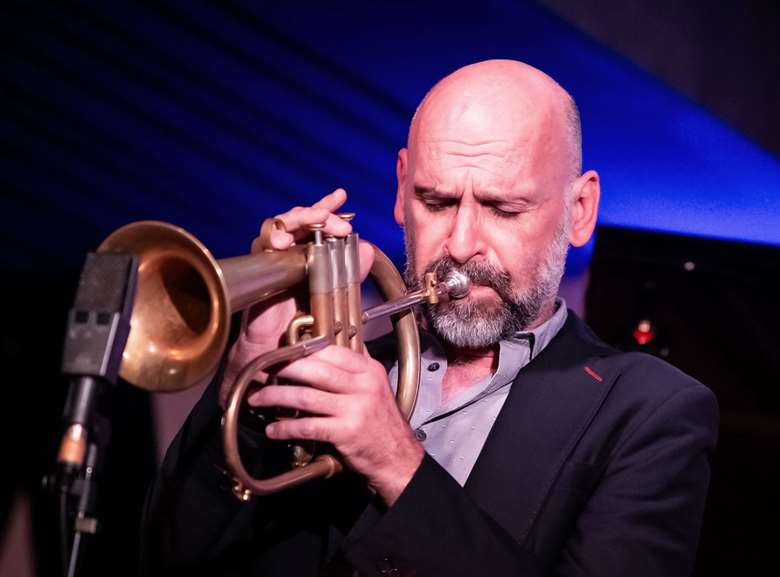The Shorty Rogers centennial, celebrated in Budapest’s Opus Jazz Club
Martin Longley
Friday, May 24, 2024
Martin Longley spent two nights in the basement, The Swinging Mr. Rogers followed by a Hungarian cimbalom-jazz fusion brew…

Opus is a classic jazz club, serving food, dedicated to listening, and taking up two floors of the Budapest Music Center. The Modern Art Orchestra is their house band, its Legendary Albums series dedicated to presenting key works in the canon. Celebrating Shorty Rogers And His Giants, they revisited The Swinging Mr. Rogers, from 1955, on Atlantic Records. It’s the trumpeter’s centenary year in ‘24, so now’s the prime time to breeze through this carefully poised West Coast jazz classic. MAO provided a quintet slice of its ranks to draw on the inspiration of the LP’s original line-up, which included Jimmy Giuffre and Shelly Manne. The album was spread across two very short sets, with ‘Isn’t It Romantic’ (Rodgers & Hart) made unusual by its baritone saxophone solo, while ‘Not Really The Blues’ (Johnny Mandel) was sparky and swift, with liquid tenor and acrobatic trumpet solos courtesy of Kórnel Fekete-Kovács, climaxing with a heated horn exchange. Balázs Cserta’s clarinet appeared for the third number, furthering the cause of tonal diversity. The second set surpassed, possessing greater focus. Rogers excelled at matching detailed expression with driving vim, and this quintet captured those qualities even more during this second half. ‘My Heart Stood Still’ had a breezy closeness, with another stand-out Cserta baritone solo. This quintet pays close attention to space and pauses.

The following night was a big contrast, rooted in Hungarian tradition, but ultimately all jazz. Trio Fröx invited Jenő Lisztes to play cimbalom (Hungarian hammered dulcimer), although his actual approach turned out to be a disappointment. Lisztes was set on making his instrument fill the jazz piano role, removing its folkish qualities, smoothing out its sound. He also, annoyingly, spent the entire set-break tuning-up, drowning out the intermission music. The audience needs a palate-pause rather than an ongoing clash of two sound sources. Otherwise, the trio played well, featuring ‘Isfahan’, electric bass immediately lending the funk, or even the dub, soprano saxophone spiking, and the cimbalom sounding more characterful. Reedsman Gábor Weisz would sometimes vocalise, in his original style, wordless and spiritually seeking. A calypso bounce made things frothier, and then Weisz switched to end-blown flute, seething with a resonant folk buzz. The night climaxed with what can only be called Ornettian Bill Haley rock’n’roll flavours.


